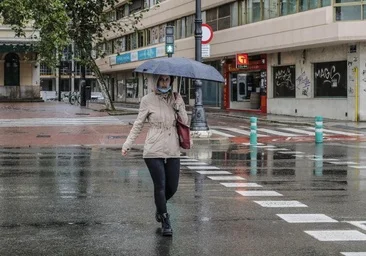A year after the devastating 'Dana' that claimed 237 lives, ravaged part of Valencia, and caused damage to 15 other provinces across six autonomous communities, the role of the Pedro Sánchez government and the decisions it made in the face of the tragedy remain shrouded in mystery. Although the law establishes the steps to be taken in a crisis, the government chose to improvise and invent the format of the committee, which allowed it to design it to its liking. Instead of resorting to either of these two bodies, Moncloa called something that was more like a meeting of friends, and a year later, it has still not explained why. According to the government, the task of this body that night was to get in touch with the presidents of Valencia, Castilla-La Mancha, Murcia, and Andalusia, as well as with the government delegates in these territories. 'The committee has placed at their disposal all the necessary resources from the UME, National Police, Civil Protection, and Civil Guard,' it was emphasized. During a stop on his trip, Sánchez sent WhatsApp messages to the regional presidents reiterating that 'the government was ready to assist them as necessary.' However, unofficial sources from Moncloa claim that the head of the National Security Agency was deliberately left out of the meeting, even though she was there that night. Specifically, in the bunker that Felipe González built when he was in power. The most competent minister in crisis matters, who would have had to chair the Crisis Committee if it had been convened, is the Minister of the Presidency, Félix Bolaños. One secretary of state, Francesc Vallés (Communications), was also called, and the third vice president, Teresa Ribera, who was in Brussels preparing for her commissioner's exam, and the government delegate in Valencia, Pilar Bernabé, connected remotely. The Presidency of the Government neither confirms nor denies this information. If the Crisis Committee had been convened that night, Yolanda Díaz would also have had to attend. In contrast to these two bodies, the government created a 'crisis committee for monitoring the effects of the Dana on the Mediterranean coast and Albacete, with the aim of coordinating response and assistance work due to this phenomenon.' At the head of this committee was placed a person without competencies in crisis management: the first vice president and Minister of Finance, María Jesús Montero, as Pedro Sánchez was returning from an official trip to India. As for its specific composition, the Crisis Committee includes, in addition to a representative from the CNI and two from the National Security Department, all ministries except for Equality, Youth and Childhood, Culture, Inclusion, Social Rights, Housing, and Education. None of this is even remotely similar to what would have happened if the National Security Council or the Crisis Committee had been convened. One of them was the irregular meeting held by the Executive at Moncloa on the night of October 29th, without bringing together any of the bodies whose intervention is established by the law regulating crisis management. For example, both the National Security Department and the National Intelligence Center would have had to participate in the meeting in both cases. In the case of the National Security Council, the Chief of the Defence Staff, the affected communities, and city councils would also have had to be called. The fourth function is to elevate to the National Security Council the analysis of the scenarios that should lead to the declaration of a situation of national interest, which would have handed over the coordination of the crisis to the government. Among these functions, four stand out. First, 'to analyze the possible scenarios of a crisis, to study their possible evolution, and to support the action and improvement of response plans in coordination with the competent bodies.' Second, 'to promote and encourage the optimal, integrated, and flexible use of the necessary means and resources to respond to the crisis situation.' Third, to organize 'the contribution of resources to National Security in the terms determined by the National Security Council.'
Spanish Government Criticized for Improvisation During 'Dana' Crisis
A year after the 'Dana' tragedy, the role of the Pedro Sánchez government and its decisions remain unclear. Instead of using official crisis bodies, the government held an unofficial meeting, sparking criticism.













